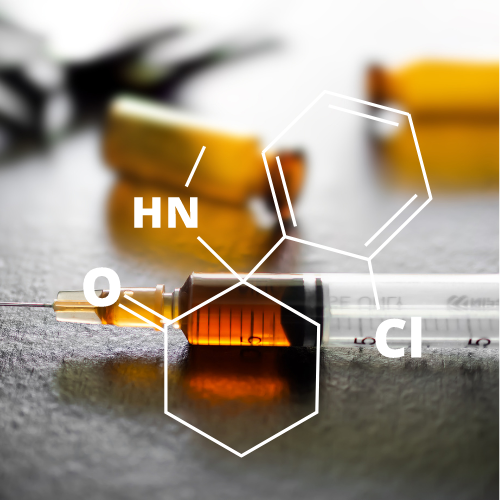Complex Post-Traumatic Stress Disorder (C-PTSD) affects many people around the world, leaving them struggling with emotional pain, anxiety, and often a sense of hopelessness. Traditional therapies like cognitive-behavioral therapy (CBT) or eye movement desensitization and reprocessing (EMDR) are commonly used, but not all patients experience full relief. Enter ketamine, a once-controversial drug now seen as a potential game-changer for treating complex PTSD.
What Is Ketamine?
Ketamine is an anesthetic that has been used for decades in surgeries and medical settings. In recent years, however, researchers discovered that it also has powerful effects on mood and thought patterns. Unlike traditional antidepressants, ketamine works rapidly, often providing relief in just hours or days, making it a valuable tool for treating severe mental health conditions like depression, anxiety, and PTSD.
How Ketamine Works in the Brain
To understand how ketamine helps people with C-PTSD, we need to look at its effects on the brain. Ketamine targets the glutamate system, which plays a key role in learning and memory. By increasing glutamate activity, ketamine creates new neural connections—essentially “rewiring” parts of the brain that are affected by trauma. This rewiring can improve mood regulation and decrease the intensity of traumatic memories.
In simpler terms, ketamine helps the brain process trauma in a way that is less overwhelming, allowing people to feel more in control of their thoughts and emotions.
Why Is Ketamine Effective for Complex PTSD?
Complex PTSD, unlike typical PTSD, stems from prolonged and repeated trauma, often starting in childhood. This can lead to deeper emotional wounds, including issues with self-worth, dissociation, and difficulties with relationships. Traditional treatments may take years to bring relief. For some people, they never truly resolve the symptoms.
Ketamine is appealing because of its speed and effectiveness. Research shows that many people experience a significant reduction in symptoms after just one ketamine infusion, and repeated treatments can lead to long-term improvement. Since C-PTSD often involves feelings of being “stuck” in a cycle of negative emotions, ketamine’s ability to break through those barriers quickly makes it an exciting option for both patients and mental health professionals.
The Ketamine Experience: What to Expect
For those considering ketamine treatment, it’s important to know what the experience is like. Unlike taking a pill, ketamine is usually administered via IV infusion, which takes place in a controlled medical setting. Some people describe the experience as “dream-like” or dissociative, meaning they feel detached from their surroundings for a short period of time.
This dissociative effect might sound strange, but it is part of what makes ketamine so effective. By temporarily disconnecting from their usual patterns of thinking, people can gain new insights and perspectives on their trauma. After the effects wear off (usually after an hour or two), patients often report feeling lighter, more hopeful, and better able to manage their symptoms.
Are There Risks with Ketamine?
Like any treatment, ketamine does come with potential risks and side effects. Some people experience nausea, dizziness, or confusion immediately after an infusion. Others may have an emotional “crash” as the drug wears off. These effects tend to be short-lived and can often be managed with the help of medical professionals.
However, one of the biggest concerns with ketamine is its potential for addiction. Because ketamine has been abused as a recreational drug in the past, some people worry about becoming dependent on it. The good news is that when administered in a medical setting under the supervision of trained professionals, the risk of addiction is very low.
Is Ketamine Right for You?
Ketamine is not a miracle cure, and it’s not the right option for everyone. However, for people with complex PTSD who have not found relief through traditional therapies, ketamine may offer a new sense of hope. If you’re considering this treatment, it’s crucial to consult with a mental health provider who has experience with ketamine therapy. They can help determine if you’re a good candidate and ensure that the treatment is administered safely.
Future of Ketamine in Mental Health
The rise of ketamine as a treatment for C-PTSD is part of a larger trend of exploring innovative therapies for mental health. Researchers are currently investigating other ways ketamine can be used, including as a nasal spray or in combination with psychotherapy. As we continue to learn more about how ketamine interacts with the brain, it’s likely that its role in mental health treatment will only grow.
Conclusion: A New Path Forward
For those struggling with complex PTSD, ketamine offers an exciting alternative to traditional treatments. Its ability to rapidly reduce symptoms, create new neural connections, and provide lasting relief makes it a powerful option for those who feel stuck in their trauma. While it’s not without risks, ketamine’s potential to revolutionize mental health care is undeniable. If you or someone you know is dealing with C-PTSD, ketamine may be the key to unlocking a new path toward healing.






